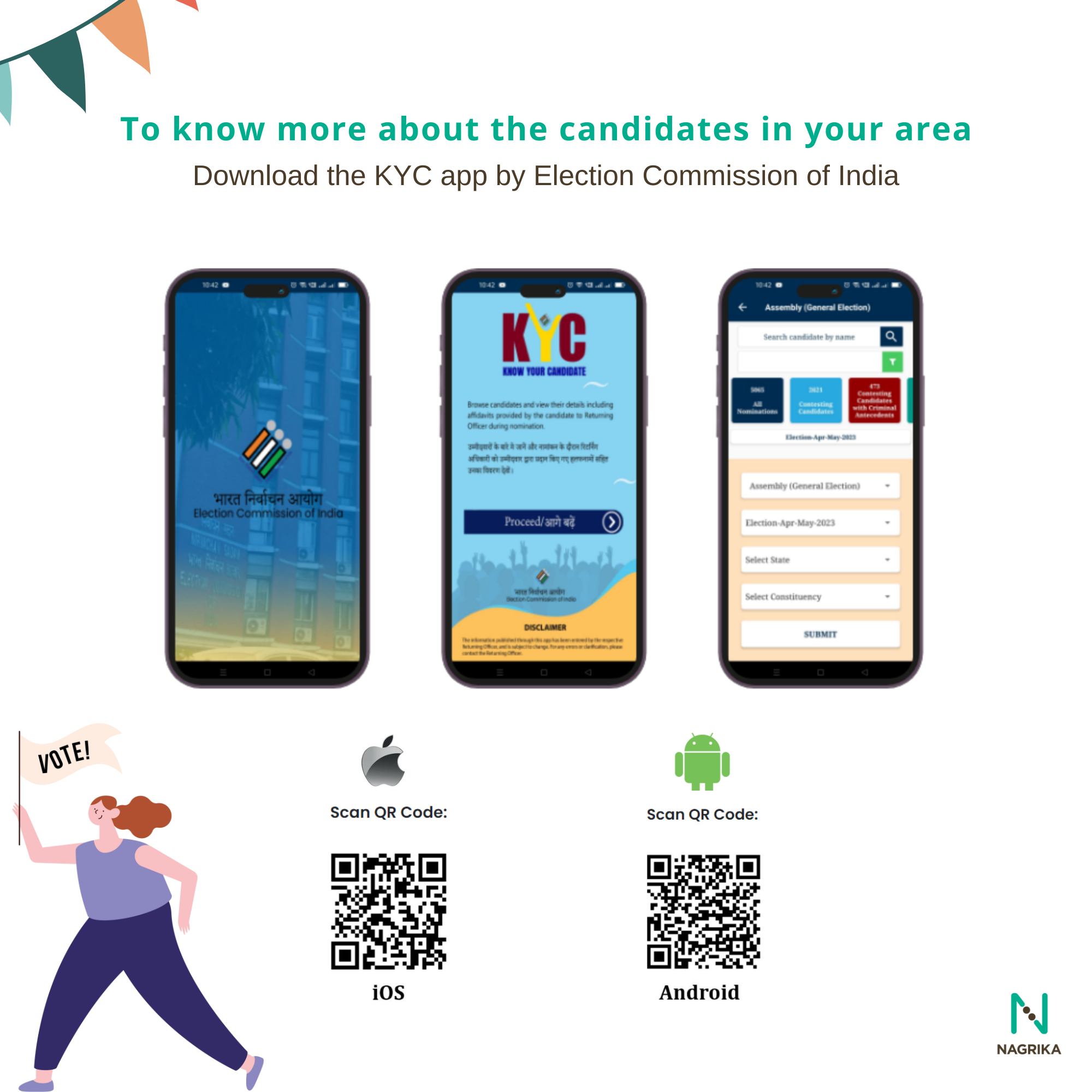Elections 2024: Enhancing Democratic Participation in Smaller Cities
/India’s General Elections for the Lok Sabha are scheduled to start on April 19th this year. Conducting this democratic exercise involves a unique set of challenges, especially in smaller towns & rural areas. In 2019, 11 states recorded turnout below the national average of 67.40%, with 297 million eligible voters abstaining. The Election Commission of India (ECI) also identified 266 Parliamentary Constituencies with historically low participation rates. 51 of these constituencies are urban, with cities like Kanpur, Allahabad, Secunderabad, Patna, Kalyan, & Nagpur on the list.
In 2022, the Gandhidham Assembly Constituency recorded the lowest polling of 48.14% in Gujarat’s State Elections, with a decline of 6% from the previous 2017 elections. Similarly, Shimla recorded a 63.48% polling rate against the State average of 75.78%. In Surat, Rural Assembly Constituencies have a higher voter percentage than Urban Assembly Constituencies. A study on class-based voting patterns in the 2019 Indian Election suggested that voter turnout in towns was 59.8%, with the rich class having an even lower turnout of 52%. In contrast, cities had a turnout of 65%, with the rich class having a higher turnout of 69.6% (Sridharan, 2020). Although studies indicate a negative relationship between urbanisation & voter turnout in India, Chandra & Potter (2016) point towards low turnout in smaller cities as well, which adds to the complexities in prior conclusions.
The Chief Election Commissioner of Uttar Pradesh highlighted how the state recorded low voter turnout in the 2019 Lok Sabha Elections despite having the highest number of voters. Its sizable migrant worker population has been missing out on the opportunity to vote as they seasonally move to larger cities for work. The ECI’s Turnout Implementation Plan is targeting such challenges of low voter turnout through tailored interventions, including awareness campaigns through postcards. In Nagpur, Folk singer Gajanan Wankhede & other local artists have been actively involved in voter awareness campaigns organised by the district collector’s office. Through street plays & creative initiatives, people are being encouraged to vote during the upcoming elections.
Through the Systematic Voter Education & Electoral Participation (SVEEP) programme, the ECI is promoting voter awareness through multi-intervention programmes & fostering community engagement in the electoral process. In Nanjangud, the SVEEP Committee held an awareness campaign for travellers at the town’s bus-stand & railway station to urge them to celebrate the polling day as a festival of democracy & vote instead of taking a holiday. Meanwhile, a Cycle Rally was organised as a part of the SVEEP campaign at Williamnagar, Meghalaya. In Yavatmal, local writer Savan Rathod has penned catchy, targeted slogans to effectively involve the Banjara community in the voting process.
In Rajasthan, district collectors in Jalore, Sirohi & Pali are actively engaging non-residents to encourage voting in their respective constituencies. Innovative approaches, such as designing Kumkum Patrika invitations on WhatsApp groups & Zoom meetings, are being utilised to urge voters. From Kerala, Congress candidate & MLA Shafi Paramabil visited Sharjah in UAE to urge NRIs to travel back home to cast their votes. Of the 88,223 NRI voters in Kerala registered with the ECI, the majority are from Kozhikode (34,909), followed by Malappuram (15,106) & Kannur (13,377).
In Rajasthan, more than 58,000 voters have chosen to participate in home voting for the upcoming Lok Sabha elections. Special polling teams have been trained to conduct home voting & collect door-to-door postal ballots from eligible registered voters who are in the senior citizen category aged 85+ & those with disabilities exceeding 40%. The successful implementation of home voting during the 2023 Rajasthan Assembly elections prompted its continuation. Meanwhile, the idea of “One Nation, One Election” has emerged with the proposal of conducting simultaneous elections for Lok Sabha & state assemblies, followed by municipal & panchayat elections. However, the India Meteorological Department (IMD) has issued concerns over its logistical possibility. Heatwaves, particularly in Gujarat, Madhya Pradesh, Maharashtra, Bihar, Jharkhand, Odisha, & Andhra Pradesh have become frequent occurrences with the ongoing climate change crisis. With extreme heat forecasted, provisions for water, cooling, & healthcare at rallies & polling stations become even more crucial.
Elsewhere in Manipur, 94 special polling stations are planned to be set up for facilitating voting for internally displaced persons (IDPs) due to the state’s internal strife. These stations aim to accommodate 24,500 IDP voters across 10 districts. Identity forms are to be distributed among IDPs & collaborations with district officials to ensure smooth voting processes. The ECI has been engaged to review overall preparedness, particularly focusing on facilitating voting for IDPs.
In Madurai, the Madras High Court has directed the ECI & the district administration to relocate the Government Madurai Medical College from being used as a vote counting centre in future elections. This was done noting the disruption to academic activities, throwing light on the need for better polling infrastructure & planning in the country. Meanwhile, in Puducherry, there have been efforts to make polling carbon-neutral through the advocacy of biodegradable election-related materials. Through a ‘walk-to-vote’ call, voters have been encouraged to avoid vehicles to polling sites within a 500-700 m radius of their residence.
As a vast democracy, India faces numerous challenges in organising such an extensive polling. But efforts are being made to overcome barriers to voter participation, ranging from migrant worker inclusion to addressing the needs of marginalised communities and improving polling infrastructure. Such endeavours not only enrich democracy but also strengthen the fabric of civic engagement, fostering a more inclusive and vibrant electoral process.
Have you registered to vote in the upcoming elections? How are your city authorities encouraging citizens to vote? Let us know in the comments section below!






